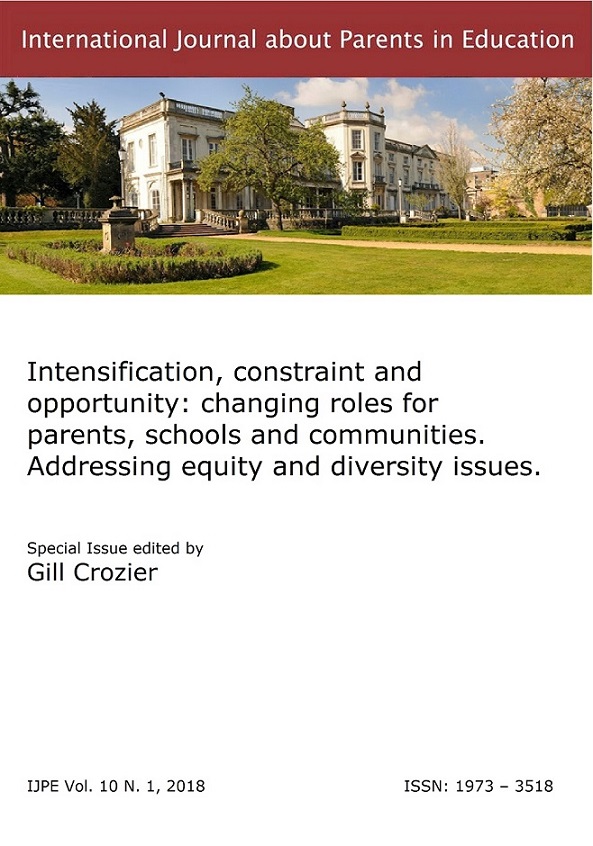Parental Involvement and Adolescent Mental Health in Taiwan
Gender and Mediational Effects
DOI:
https://doi.org/10.54195/ijpe.14151Keywords:
parental involvement, Taiwanese adolescent mental health, self-efficacyAbstract
Using a nationally representative sample of nearly 14,000 7th grade students from the Taiwan Educational Panel Survey (TEPS), this study examines gender and meditational effects in the link between parental involvement in education and adolescent mental health. Results of multigroup structural equation modeling demonstrate that girls were more likely to have a lower level of mental health status than boys. Mothers were more actively involved than fathers in aspects of their daughters’ education; and fathers were more actively involved than mothers in their sons’ education. Results support a mediational model in which paternal and maternal involvement were indirectly associated with mental health status of both sons and daughters via the mediator of student self-efficacy. Gender patterns were identified regarding supportive and controlling types of parental involvement practices. With regard to the association of socioeconomic levels with parental involvement, parents of higher socioeconomic status were more actively involved in supportive practices when compared to those of lower socioeconomic status.





